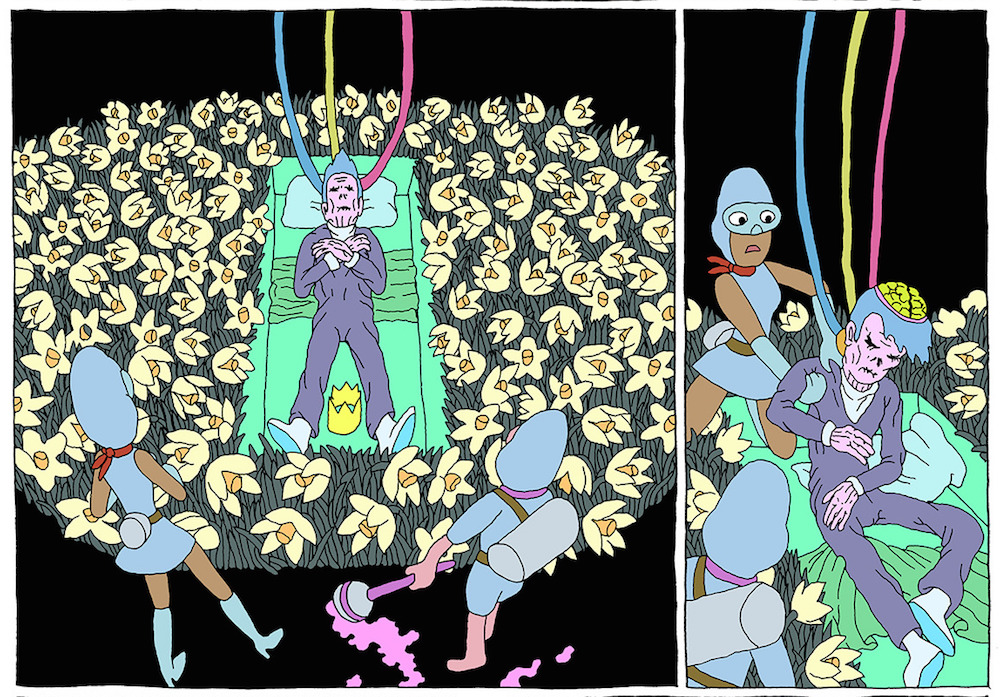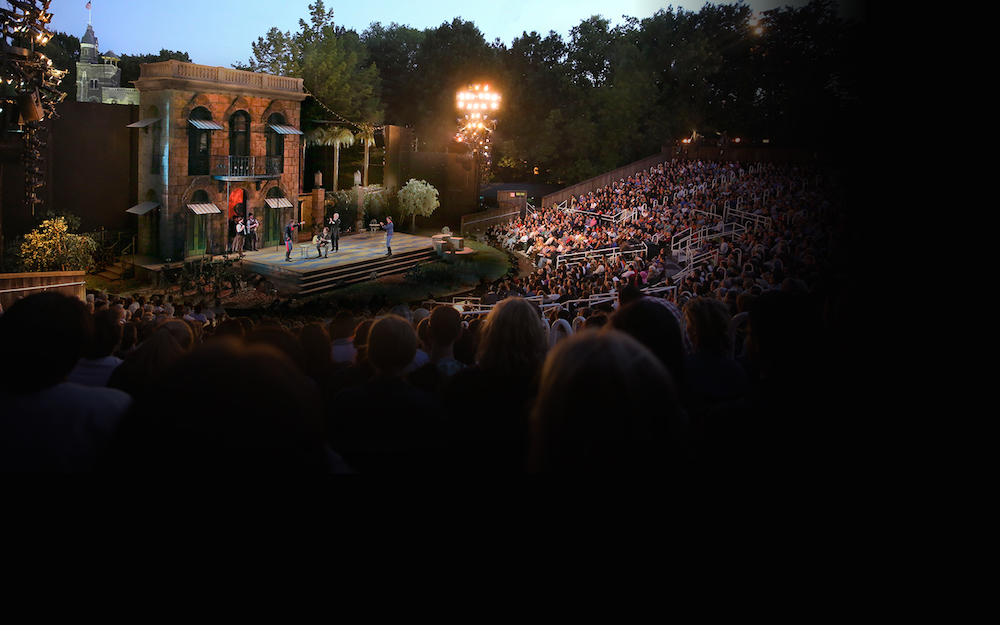Jorja Smith’s debut full-length album, “Lost and Found,” has taken residence in my mind since its release last week. Between tracks, the 21-year-old R&B singer wrestles with her own self worth (on “Tomorrow”: “The hardest thing I have learned is I can’t help myself/ If I can’t trust my worth/ Then I can’t trust my words”), and with the gaze of the UK police state (on “Blue Lights”: “I wanna turn those blue lights into strobe lights/ Not blue flashing lights, maybe fairy lights”). Being young in the summer is difficult, but made easier when you have someone else living through it alongside you. Last year there was SZA’s gentle Ctrl; this year, Jorja Smith takes on her demons with a jazzier vibe, more melancholy than anxious, and very, very matter-of-fact. Almost like a diary entry. —Eleanor Pritchett
On October 25, 1977, Roland Barthes lost his mother, Henriette Barthes. The next day he began a “mourning diary,” writing each entry on a slip made from typewriter paper cut into quarters. He maintained the diary until September 15, 1979—a little under two years. Five months after this final entry, Barthes was hit by a laundry truck while crossing the road. He deteriorated in hospital for a month before succumbing to his injuries. In the foreword to the English translation we learn that Mourning Diary is “not a book completed by its author, but a hypothesis of a book desired by him.” This is borne out in the tangled reading of observations that range from the philosophically speculative to the quotidian. His suffering repeats, swells and subsides, seemingly without design or reason: “What I find utterly terrifying is mourning’s discontinuous character.” At times, our participation in that mourning feels like an invasion—these notes were not intended for publication in their current form—and if anyone were to tell me they read this book for purely high-minded reasons, I would distrust them. But past the rubbernecking is something more significant, for here is grief at work on a brilliant mind. The result is disordered, clumsy and, at times, prosaic. It is also has the virtue of being true.—Robin Jones
Do you remember being unable to read? Confidently flipping through picture books and narrating from the illustrations? I don’t—not really—but glimpses kept coming back to me with A. Degen’s overwhelming, wordless comic book Soft X-Ray/Mindhunters. Bear with me as I try to explain it. The comic book is kind of a retelling of the allegory of Plato’s Cave, albeit with more lasers and space travel and smiling butterfly cops. We follow Mindhunters Cherikola and Lalo through the galaxy as they pluck out disembodied brains with a toilet plunger, in turn deprogramming these brains’ vast, but illusory worlds. When piecing out a narrative for each chapter, pointing at each panel with a finger, I found that I would squeak out plunger sounds under my breath, or add dialog of my own. One of my favorite parts is a section that details the convoluted manner in which one character delivers his messages. First, he speaks through one phone, and stuffs photographs in another. On the other line is Lady Operator, who holds both phone speakers to the ceiling—each expel a maroon cloud of smoke. In comes the Phone Crone, who vacuums up this cloud with a wind-up, mechanical chicken, which promptly pops out a little egg. And finally, once delivered, this egg hatches into a cheerful, chirping info-chick! Did I cheerfully chirp for the chick? Yes I did. —Isabel Ochoa Gold
Classical harpsichords, Usher, and robot screams are all points of reference for “Age Of” by Oneohtrix Point Never. Although the album’s interest in genre-bending mashups and experimental formatting might not be new, the ultimate aesthetic product is, in this case, revelatory. Imagined as a piece of science-fiction, the album considers how modern media output and consumption might be viewed by subsequent AI generations. In doing so, it asks the listener to consider the present from an ambiguous future while complicating our own relationship to our cultural past. The album conveys this through its own historical allusions to classical music and Gregorian chants, which effectively blur the distinction between musical heritage, digital present, and bewildering future. It’s as if Bach and a machine learning conductor have choreographed a zero-gravity ballet in a space shuttle. What it winds up sounding like, however, is a thoughtful, overwhelming, and quite often emotionally moving musical experience. In a way, it pushes the musical medium beyond its own limits, free from genre or explicit political message. Instead, it creates an aesthetic event that is just as radical in its form as its content. As if in a video game, the listener sweeps through various soundscapes with each new track. There is a sense of endless sifting through data, a musical rendition of the pain and pleasure of screen addiction. There is a futuristic western square-dance in the midst of a climate disaster. Or at least, that’s what was conjured for me. I sense that the brilliance of this album lies in its open-endedness, its ability to use the ambiguity of temporal experimentation to conjure different possibilities for different listeners. Most importantly, despite all of this intellectual ambition, the album is also deeply enjoyable listening. You will, perhaps, even dance to it. —India Ennenga
Fighting at the top of my weight-class is going to Shakespeare in the Park. A knock-out is going without having to wait in line. Last Friday, I stepped through a cloud of kebab smoke into Central Park, where the sun was beginning to set on women waiting for the bathroom outside the Delacorte Theater. It’s a common delusion of New Yorkers that we are at the center of the universe, and nothing compounds that notion quite like sitting in the semi-circle of seats of the Delacorte. As stars replaced swallows above the rigging, and Iago in his leather daddy getup threatened Othello’s hard-won happiness, I settled into a brief self-congratulatory mood. The odds are what get me: 2000 people watching a 5000-year-old play in an 843 acre public park in the center of a stinker of an American city on top of a trash heap in the Atlantic ocean. Othello wasn’t the greatest work of theater I have seen but that it worked at all is a miracle. —Julia Berick
As a continuation of last week’s “Anti-Beach Reads,” I’m suggesting William T. Vollmann’s Carbon Ideologies. Drive your fossil fuel burner to the beach, grab a refrigerated drink, and prepare to feel bad about your luxuriant existence. Vollmann paints a grim picture in this two volume letter to the future: “When my generation was alive, I used to wake up, reach out and turn a switch to light up my bedside. To you who can no longer live this way, this must sound as incredible as if I were to claim that I called on angels or that I could wander anywhere without a radiation meter.” Carbon Ideologies, is quintessentially Vollmannian in that it dives deep—too deep?—into specialized language (this time lots of electrical engineering math) and history to try to explain how the fundamental assumptions on which our first world living is based will eventually, and inevitably, cause irreparable damage and perhaps the end of human civilization, if not the earth. Buried not so deeply within the story of our carbon ideology is Vollmann’s warning against capitalism—the very same system you and I, dear reader, willingly take part of—run amok: “We were all outnumber by ordinary practical folks for whom cheap energy and a paycheck incarnated all relevance”; he’s talking about all of us and the burning carbon on which our income depends. But push your guilt aside, there’s really nothing we can do at this point, Vollmann admits this while pleading with his judgmental future readers, you might as well enjoy your air conditioning, your refrigerator’s ice machine, and the planet and time that we have left. Just add your voice of hope to Vollmann’s when he says, ““Anyhow, I hope that you in the future have learned how to make your spent fuel rods safe.” —Jeffery Gleaves
What drew me to hip-hop in the first place was the bottled lightning you hear when certain performers get in the booth together. Raekwon and Ghostface Killah have it. Migos’s best records positively hum with this energy. It’s the electricity I felt in high school, goofing around with my friends and trading freestyles in the marching band’s storage room. The Baltimore group Creek Boyz carry on this tradition—but with a twist. Instead of simply ad-libbing and hyping one another up, they sing. I realize this doesn’t sound novel on its own, but it’s impressive in action. On their breakout hit, “With My Team,” an indeterminate number of voices swim behind each verse, swelling at every climax, threatening to drown out the lead performer. This group effort, like some strange combination of gang vocals and Boyz II Men, just feels good, and furthermore, it’s becoming a rarity. Rappers no longer have to be in the same booth or even the same country to record a song together. The near chaos of Creek Boyz—swerving, boasting, and singing their lungs out—is a reminder of the beautiful magic that can only happen when really, really talented people come together and feed off of each other’s creativity. I’d say more, but it’s a summer Friday, which means I need to go rent a G-Wagen and blast “Boss Right Now” as I drift down dark country roads and across the weekend. —Brian Ransom
from The Paris Review https://ift.tt/2IipJ0I




Comments
Post a Comment